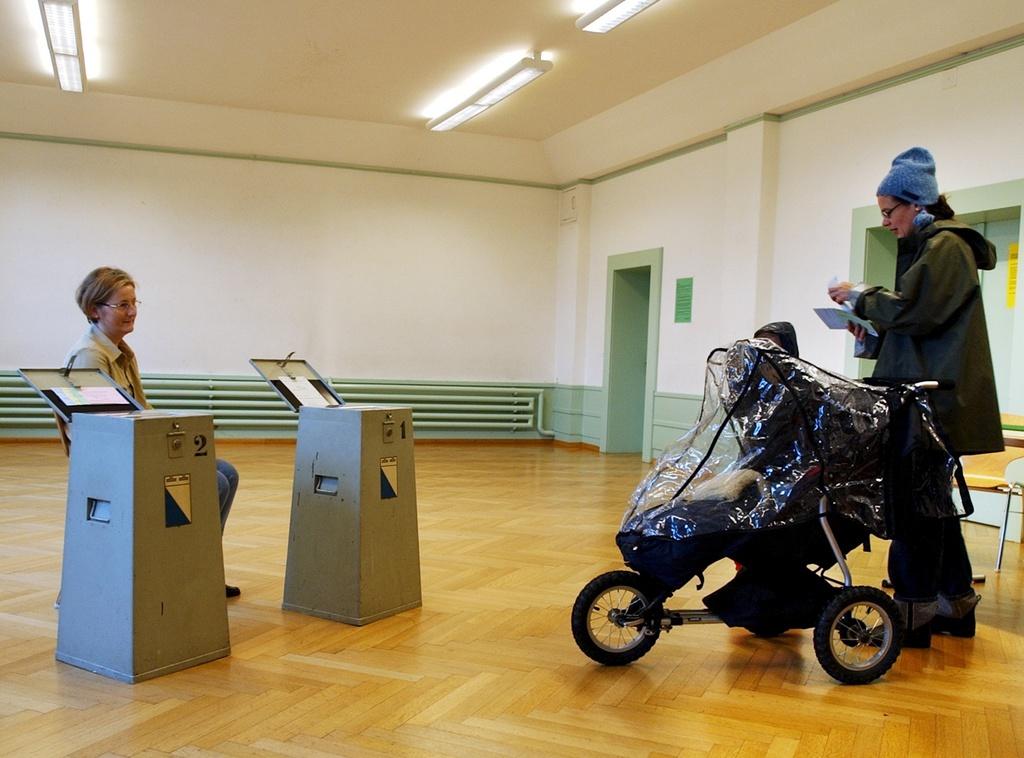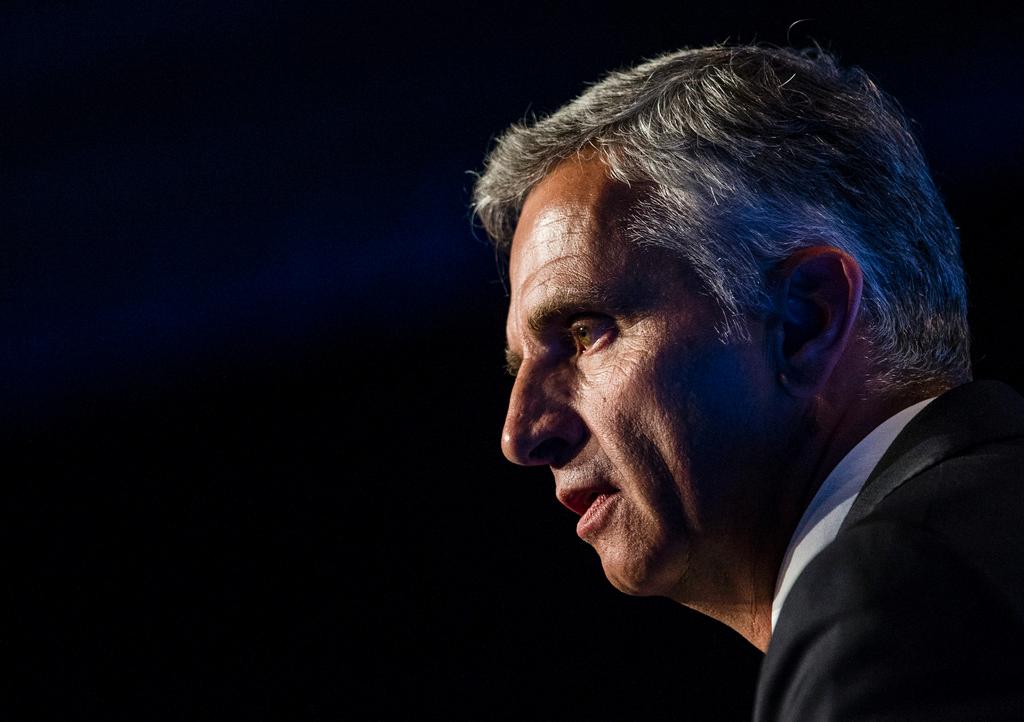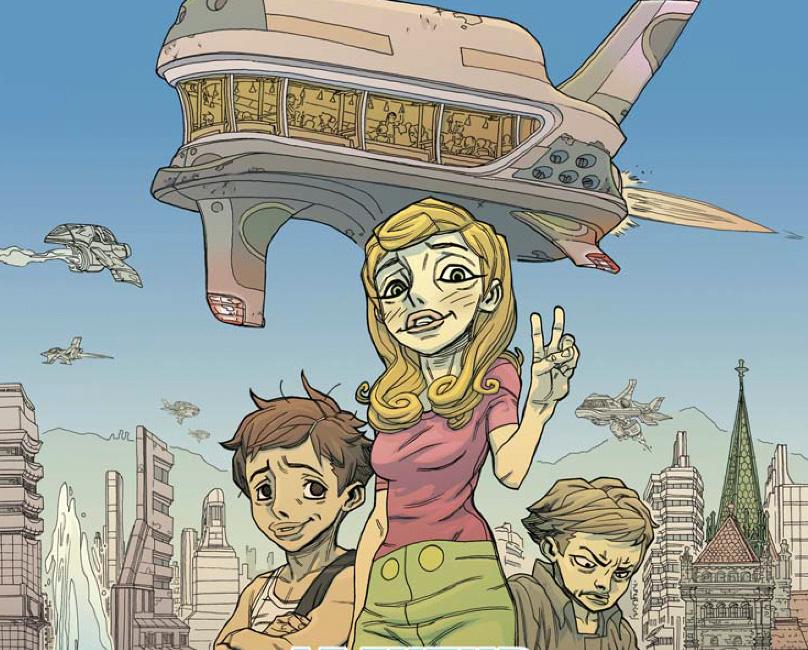Youth votes needed to help meet future challenges

The International Day of Democracy, which Switzerland will participate in for the first time this year, provides an opportunity to encourage more young people to become involved in political life. At least that’s what Geneva chancellor Anja Wyden Guelpa hopes.
Although Switzerland votes more than any other country in the world, Wyden Guelpa says Swiss youth in particular do not have enough of a voice. Democracy Week, which runs until September 19 and will involve a series of debates, conferences, exhibitions, mock votes and meetings with parliamentarians, is a means of reinforcing the importance of including all levels of society in the democratic process, she says.
swissinfo.ch: The United Nations has chosen “A space for civil society” as the theme for the International Day of Democracy. Do you think Swiss direct democracy gives enough space to civil society?
Anja Wyden Guelpa: Switzerland is probably the country which pushes the integration of civil society further than anywhere else in the world. We have more national votes than all the countries that employ a form of direct democracy combined. We don’t just have popular initiatives and referendums; our militia parliament, all the consultation procedures and extra-parliamentary commissions also contribute to a very broad integration of the population. On this side of things, I think that we are good students, but it’s not enough.
Our democracy needs all levels of the population to be able to express themselves and that is not currently the case. Young people vote a lot less than the average population. As well, people aged between 70 and 75 vote the most often. Of course I’m not saying that the opinion of the elderly has less value than that of the youth. But I do think that if we want to rise to the challenges of tomorrow, we cannot do without the voice of the youth. It’s a bit like if a business polled its oldest clients when developing a new product.
PLACEHOLDER
swissinfo.ch: Is the solution impressing more upon teachers the importance of civic education?
A.W.G.: I think it is not only civic education classes that count. We have to imbibe young people with a passion for political life. They need to be able to experiment, to live democracy through role playing, for example. If a teacher is enthusiastic, there are many opportunities to transfer this passion to young people. We try to help them to do it.
swissinfo.ch: Can an event like Democracy Week really lead to increased youth participation?
A.W.G.: Yes, it’s our responsibility to transfer this passion for politics to today’s youth. It’s not always easy because the chancellery has multiple roles and particularly must incarnate authority in a certain number of areas. So it’s important that we speak to young people adult to adult, and listen to them. We cannot settle for being paternalist or reproach them for not voting.

More
‘In search of small but significant things for democracy’
swissinfo.ch: To follow this logic, have you included young people in the organisation of your projects?
A.W.G.: That’s the basis of how we work. We become old and out of touch very quickly in a number of areas. There are things which escape us very quickly, notably in the digital world or in current language. That’s why some of our projects are really co-organised and created by young people. It’s a strategy born from the fear of getting it wrong. Trying to speak in the language of the youth without consulting them often proves pathetic. You can see it in television advertisements that are supposed to address youth.
However, by doing things with them, it is impossible to fake it. They help us in particular to develop our social media strategy. In the context of Democracy Week, we are working with the Geneva youth parliament, which is one of the organisers of speed-debating (a concept which melds the elements of speed-dating with traditional debating).
swissinfo.ch: Given that Geneva is the headquarters of several international organisations, can we imagine that the city will become a kind of laboratory of ideas on the democratic process?
A.W.G.: Our concept has already gone beyond Swiss borders this year, thanks or our collaboration with the Inter-Parliamentary Union. This is something that will be reinforced next year. Notably we are thinking about teaming up with another country, perhaps one which doesn’t have a democracy as sophisticated as ours. Maybe not necessarily through organising trips abroad, but rather through viewpoints, films, texts or a blog. Those who grow up in Switzerland sometimes feel that democracy is self-evident. You have to step away to realise how privileged we are.
International Day of Democracy
In 2007, the United Nations General Assembly declared that every September 15 should be observed as the International Day of Democracy. This year, the Inter-Parliamentary Union (IPU) is highlighting the importance of public participation for democracy through its member parliaments in 166 countries.
Translated from French by Sophie Douez

In compliance with the JTI standards
More: SWI swissinfo.ch certified by the Journalism Trust Initiative













You can find an overview of ongoing debates with our journalists here . Please join us!
If you want to start a conversation about a topic raised in this article or want to report factual errors, email us at english@swissinfo.ch.